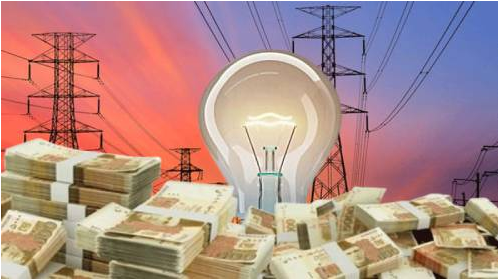INP-WealthPk
Moaaz Manzoor
Experts believe Pakistan’s continued reliance on financial engineering in the power sector without fixing systemic inefficiencies could exacerbate its debt issues, reports WealthPK.

With ongoing IMF-backed reforms and debt restructuring plans, experts are voicing concerns that Pakistan’s approach to managing power sector debt may be repeating past missteps rather than correcting them. In the wake of Climate Resilient Sustainability Facility operationalisation, the focus has turned sharply toward revenue-centric, short-term fixes while delaying deeper, structural overhauls.
Pakistan’s power sector circular debt has ballooned to Rs2.3 trillion, and the broader energy sector debt to nearly Rs4.7 trillion. Speaking to WealthPK, Muhammad Basit Ghauri, Manager of Special Initiatives at Renewables First, a think tank for energy and environment in Pakistan, explained that recurring reliance on commercial borrowing to manage this debt burden risks creating “a vortex” where new loans are rolled over year after year without addressing core inefficiencies.
"You will keep coming to the same thing repeatedly," he said, stressing that meaningful reform must focus on reducing transmission and distribution (T&D) losses, which remain around 16%, over three times the global average of 5%. "You have to invest in the grid in the long term,” he added, highlighting the need to modernise infrastructure to curb energy losses. Ghauri also pointed out the underutilised coal power plants, which receive capacity charges based on nearly 50% utilisation, even though some plants operate at just 20-30%.
For sustainable improvements, he suggested incentivising industrial demand for electricity and renegotiating legacy contracts to shift from “take-or-pay” to “take-and-pay” models. However, he warned that ongoing talks around contract renegotiation risk undermining investor confidence. Syed Ali Ehsan, Deputy Executive Director at PRIME, pointed out that the IMF’s ongoing programme has placed the energy sector at the core of structural reforms.
He explained that the government plans to convert a large portion of circular debt into sukuk to ease the interest burden, supported by a proposed fixed surcharge. He noted that it may look like reform on paper, but it effectively shifts the burden onto consumers through a fixed debt service surcharge. He warned that while the sukuk swap may free up fiscal space, it doesn’t resolve the underlying inefficiencies that generated the circular debt in the first place.
“Moreover, while the IMF programme acknowledges the need for structural reforms, such as minimum energy performance standards, targeted cash subsidies through Benazir Income Support Programme, and privatisation of distribution and generation companies, most are deferred to later stages,” he said.
Experts agree that while debt restructuring through financial instruments like sukuk may temporarily reduce the fiscal burden, it will not solve the root causes of inefficiency, leakage, and poor governance. Unless core structural issues, such as transmission and distribution losses, underutilisation of assets, and poor governance, are prioritised, current policies will not achieve the intended outcomes.
Credit: INP-WealthPk













